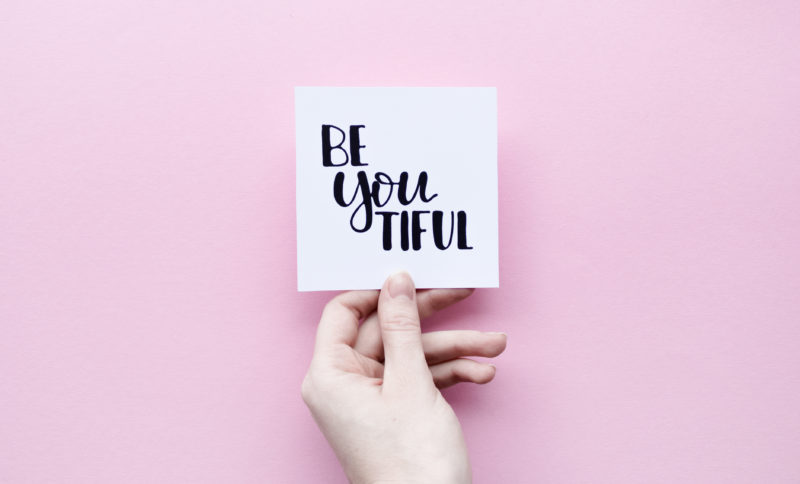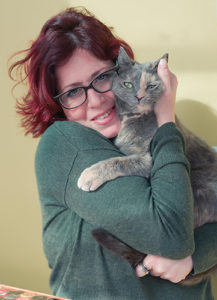I was eight years old the first time I remember being aware of my difference. It didn’t have a name yet, that was still decades away, but nonetheless, suddenly at the ripe old age of eight, I was cognizant of that I was indeed different. For the seven years of life prior to that, I happily lived in my imagination, playing alone for hours, and only vaguely conscious of my peers. Satisfied with the social of parallel play, what other people thought of me and whether I was playing right mattered not to my young self, that is until it began to matter to others.

Because my difference had no label yet, the adults in my life gave me some of their own. As teachers, doctors, therapists, and family members alike each experienced their version of my difference, they would attach descriptors to me in an effort to explain my difference to each other. Complicated, difficult, different, stubborn, and manipulative were used so often to “discuss me” that they would become synonymous to ‘Becca’ in my head. Decades later, as I began to unpack the trauma of being undiagnosed through therapy, I realized that all the descriptors I had been given to use about myself were not only not accurate, but their frequent use had obliterated my ability, and opportunity, to develop a healthy, accurate sense of self.
Almost eight years after receiving my autism diagnosis, I can finally say that I have developed a much more accurate sense of self. A correct diagnosis, years of therapy, and a dedication to personal growth later, and I have managed to reprogram my internal monologue to reflect reality. I have painstaking rebuilt my confidence in myself, relearned how to trust myself, and amassed just enough self-esteem to begin to value my own needs as much as the needs of others. None of it was easy and all of it should have been unnecessary.

Becca Lory Hector, CAS, BCCS
While I would love to believe that I am one of a few autistic females diagnosed in adulthood who suffered from a disrupted sense of self identity, it is quite simply not true. I would venture to say that most, if not all, autistic women struggle with a distorted sense of self. How could we not? For most of our lives we have been told both explicitly and implicitly, that what we are naturally inclined to do is wrong or bad. You stop trusting yourself, you stop liking yourself, and you stop wanting to be yourself. You begin masking, scripting, and mimicking in a last-ditch attempt to at the very least cover up that damn difference. Not surprisingly, if you spend enough years like that, trust me, you can no longer muster even a spark of self-confidence by just being yourself because you no longer have any idea who that even is anymore.
The good news is that this doesn’t have to remain the narrative. We don’t have to have thousands of autistic women and girls who are miserable and barely surviving because they are spending so much of their precious energy just pretending as hard as they can to be “normal,” a nonexistent, unattainable ideal. We can do better, much better.
To begin, the girls and women of the spectrum need validation. They need to have their symptomology recognized, their experience validated, and their needs understood. While for years, autism was thought to be a boys’ club, we now know that it is not, and it’s time that our testing, supports, and services start to reflect that. After all, a large part of having self-confidence and a strong identity is knowing that your needs are important enough to be recognized.
Next, autistic girls and women need role models. Not just as mentors but as goal posts and archetypes to aspire to. As a young girl, I needed real women in my life that I could relate to and look up to, but I could never find one who was ‘different’ like me. We need our autistic girls, to have strong, successful, autistic women to look up to. We need their parents to have these same women to look toward as examples of what their daughters can be. We need an infusion of loud and proud autistic femaleness to break this cycle of invisibility. Otherwise, I will continue to meet autistic girls and women who don’t have anyone to look up to, parents who have never seen an autistic adult so they cannot imagine their child as a grown up, and teachers who continue to underestimate the abilities, and the struggles, of their autistic female students.
Lastly, listen and observe. Though we aren’t loud enough yet, there are autistic women and girls shouting from their proverbial rooftops to be heard. Be a listener. Be an observer. So many of us have learned to internalize and isolate to survive. You can foster our self-confidence by not dismissing our words, thoughts, and needs as “weird” or “odd” but instead try to listen without judgement to how we interpret the world and observe how completely amazing we can be when we are allowed to freely be our authentic selves.
I remember who I was when I was seven years old. I was feisty, opinionated, silly, sarcastic, loyal, thoughtful, enthusiastic, and overly in love with anything furry. I lost that girl at eight. I spent years drowning her in various versions of the mask the world required from me. BUT I found her again in my forties, after I had peeled back the onion that being undiagnosed had let grow. I found her there, still feisty, still enthusiastic, still silly, and oh, so very glad to be free.
Becca Lory Hector, CAS, BCCS, is an autism & neurodiversity consultant/author/speaker/advocate based in Colorado. You can find more of her work, sign up for her newsletter, and follow her social media by heading to her website, www.beccalory.com. You can also email her directly at info@beccalory.com.




[…] article was originally published on Autism Spectrum News. Click here to see it on their site. I was eight years old the first time I remember being aware of my difference. It didn’t have a […]
[…] This article was originally published on Autism Spectrum News. Click here to see it on their site. […]